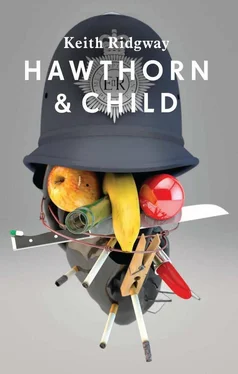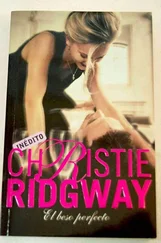I stopped.
He stared at me. There was no trace of a smile. But there was something in his eyes. I didn’t know what it was. He cleared his throat. I expected him to say something. But he didn’t. He just looked at me.
— You see?
He nodded.
— Let’s hope, he said, very slowly, that it doesn’t come to that.
I was on now. On. I could taste blood in the water and my darkest muscles were humming. Darkness guided me. Darkness lit the way.
I gathered intelligence and sketched out the set pieces. Plot. Structure. Scenes. I wanted them to simply exist, for now. To become discreet units, blocks, which I could arrange and rearrange, shifting then into shapes which moved forward and doubled back; which revealed and obscured; which hinted at success for one side or the other; which indulged confusion; which suggested the existence of other variables, other sides; which assumed the presence of something infinitely more complicated than any single scene might suggest on its own; which created, continuously, an increase of tension with small plateaus of intermediary action, death and violent release. The parts had to be small, subtle, precise; the assembly clever and efficient.
I gathered. I made lists. I examined the maps and plans of the Olympic site. I investigated transport links, accommodation areas, the anticipated movements of the public, the timings and location of events. I paid particular attention to vehicles. I spent a long time investigating the manufacture and specifications of black cabs.
I worked either at home or in the British Library. I rose early in the mornings, and worked grimly, angrily, for most of the day. I made sorties to various locations, taking photographs on a small digital camera, learning how to understand a junction or a crossroads or a train station by watching — from a point of stillness — the movements of people and vehicles, the disposition of the staff, the arrangement of the security devices. The patterns are there. They are predictable. They can be interrupted. I began to lose weight.
It is difficult to move through the city without leaving a trace. My Oyster card became an annoyance. It was registered in my name and after a while I left it at home. I bought a new one, unregistered, which I topped up with cash at machines in the stations. I stopped using my credit card. I used cash everywhere. Of course, I still had to withdraw cash using my debit card. But I limited this to the one machine, nearest my flat. I wondered about the cameras. There are cameras everywhere.
I investigated pay phones, phone boxes, public phones, phone cards. I talked to the guys at the corner shop about phone cards. They explained to me how they worked, who bought them, how they were more or less geographically weighted. This one for North Africa, this one for Central Africa, this one for Eastern Europe, this one for the Middle East, this one for Asia. I bought a couple of cards. I spent time in a few boxes near home. I dialled random numbers, variations on numbers I found on the internet for various businesses that I barely understood the purpose of, and sometimes the numbers themselves, to get an idea about the sound quality, the language, the way in which a Beirut florist becomes exasperated, or how an accountant in Karachi shouts into a telephone. Every time I called Cairo there was an echoey hiss on the line as if the connection went back in time. My calls to Damascus failed to get through at all. It was absurd, expensive.
I travelled the tube. I wandered the stations. I imagined. I looked at the crowds as the train doors opened. Now . I looked at the tired workers, the school-kids, the elderly, the mothers with their children. I looked at the faces of confused tourists. Now . I stared at suitcases. I looked at the glass and metal. Now . Sometimes I would see a woman I liked. I would find myself waiting until she got off. But that was wrong. Do it now .
On the streets I stopped in doorways and hesitated at crossings and stood still in places where people do not stand still. I dropped my pace, changed my perspective. I slipped through the city.
I began to imagine that I was being followed. This caused me a gentle, grim pleasure. I did not really believe that I was being followed. Not really. But I could turn suddenly in the street and see someone veer. I could glance behind me at a pedestrian crossing and find someone who had been in the same tube carriage. As I hesitated at a corner, turned back on myself, I could see faces that registered surprise, or which hid it with an unnatural blankness. Sometimes I saw people in windows. In cars. Parked vans, workmen.
One morning as I sat at my desk in the British Library I looked up suddenly and saw something — a figure — slip behind a bookcase at the edge of the reading room, not far from where I was. There was something about the movement, something jerky, which made me think it entertainingly suspicious. I stood up and walked over there. There was a man, a young man, consulting a publishing catalogue in a narrow aisle. I considered him for a moment. He seemed lost in concentration. But I noticed that his eyes were not moving, and that the little finger of his left had was bouncing up and down on the page. Like a signal. I moved around him, consulted volumes on one side of him and the other. I went to the next aisle and stood opposite him, our heads level through the shelves. He never once looked at me. Never once. I drifted back to my desk. I wrote out a description of him. I looked up again and he was gone. Playing his role to perfection, he disappeared completely. I never saw him again.
Eventually, I paused long enough in my plotting to write a two page pitch. It fizzed like a fuse.
I did nothing for a couple of days. I slept. I looked at my flat. I shaved.
I called Stanley from a phone box in Muswell Hill.
— I’ve done something. I’m not sure you’ll approve.
— Oh good.
— Are you free? When are you free? This week.
He didn’t want to see me. He tried to put me off to the following week, or the week after that.
— Stanley.
— What?
— Make it this week. It’s big.
— What’s big?
— I don’t want to tell you about it on the phone.
— What are you talking about?
— I’ll meet you in that pub. Same as last time. Tomorrow. 2pm. Be there Stanley.
— What? Oh … drat … all right. Well, make it 1.30 will you?
— Alright. 1.30. You won’t regret it.
— What’s wrong with your voice?
— What do you mean?
— You sound like one of the Mitchell brothers. Do you have a cold?
— No. Yes. I have a cold. Tomorrow. 1.30.
I sipped my tea and looked out of my window. I could hear the high whipping of a helicopter, but the sky was just blue.
I left the flat in plenty of time, carrying everything in a rucksack. Though all Stanley really needed in order to make a deal was the two page précis, I wanted to show him — I wanted, I suppose, to impress him — with the background work already completed. I had copious notes on the viability of radioactive material and the explosives best suited to efficient dispersal. The internet had helped me with that. I’d studied the requirements for the safe storage of these materials and the procedures necessary for their handling. I had sample contracts from two self-storage places. I had detailed specifications of black cabs, London buses, tube trains, golf buggies. I had copious notes on the operating structure of the London 2012 organising committee; as well as, of course, detailed plans of the Olympic site and its surroundings. I had diagrammatic representations of air traffic, sea traffic, road traffic into and out of the city. I had city maps of Cologne, Cairo, Islamabad, Kabul, Damascus, New York and Birmingham. Train timetables, route maps. I had scene sketches for four major set pieces; biographical notes for nearly a dozen characters; timelines and calendars; motivation flowcharts; psychological frameworks. I had …
Читать дальше












